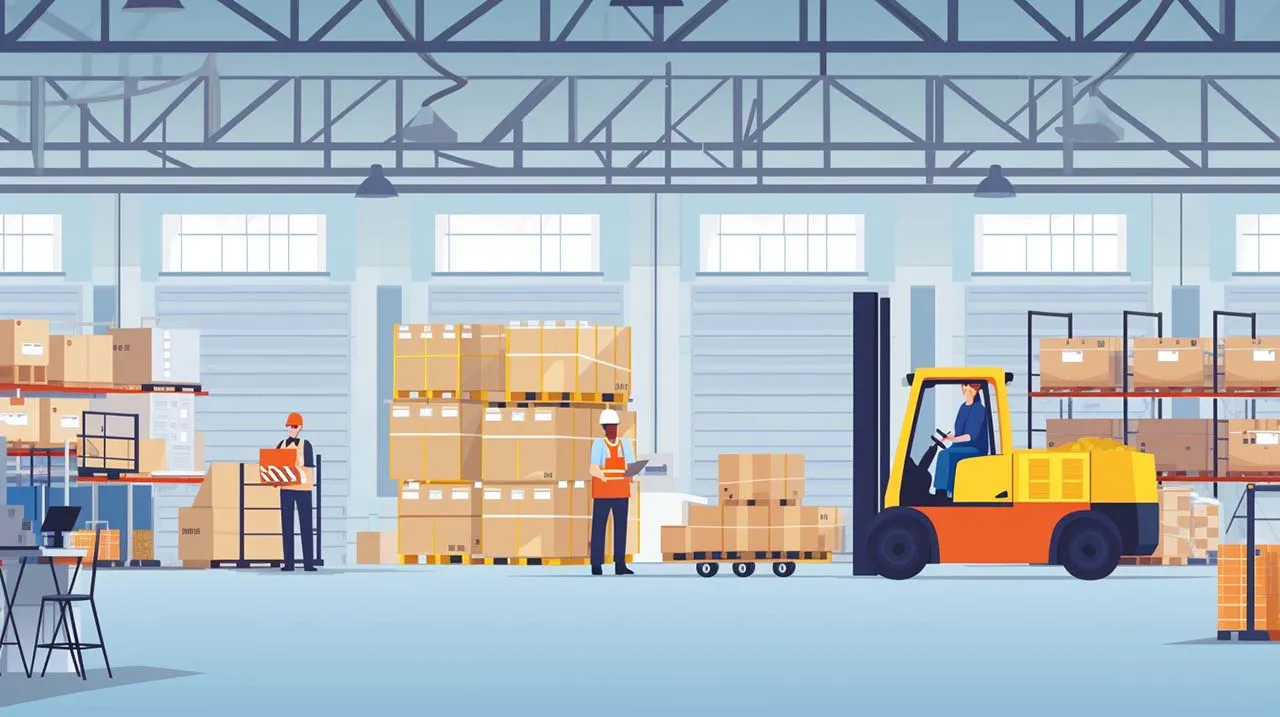Maximizing efficiency in retail logistics management is crucial for businesses striving to meet customer demands while minimizing costs. As the retail industry continues to evolve, driven by advancements in technology and changes in consumer expectations, the need for a streamlined logistics operation has never been greater. Retail logistics involves the coordination of everything from sourcing and storing products to ensuring timely delivery to customers, whether through brick-and-mortar stores or e-commerce platforms. In today’s competitive environment, retailers must optimize their logistics strategies to stay ahead and ensure they deliver the best possible experience to their customers.
At the heart of maximizing efficiency in retail logistics is the integration of advanced technologies and systems. One of the most effective ways to improve operations is by utilizing data-driven tools and automation. Inventory management systems, for example, can track stock levels in real-time, helping businesses avoid overstocking or stockouts. This not only ensures that products are available when customers need them but also helps reduce waste and unnecessary storage costs. Moreover, integrating these systems with supply chain management tools enables retailers to make more informed decisions regarding procurement and distribution, further improving overall efficiency. With the use of Retail Logistics technology, businesses can optimize their supply chains, ensuring that products move swiftly from suppliers to warehouses and eventually to customers.
Another key aspect of maximizing logistics efficiency is streamlining the order fulfillment process. Retailers can achieve this by adopting best practices in warehouse management and order processing. For instance, implementing barcode scanning and RFID (Radio Frequency Identification) technology can significantly reduce errors and increase the speed of picking and packing orders. Additionally, the use of automated sorting systems can ensure that the right products are quickly identified and shipped out, reducing delays and improving customer satisfaction. For e-commerce businesses, it’s especially important to provide accurate delivery estimates and ensure that products are delivered on time. This level of operational efficiency can greatly improve customer loyalty and lead to repeat business.
Collaboration with third-party logistics providers (3PLs) can also play a vital role in improving retail logistics. By outsourcing warehousing, transportation, and fulfillment tasks to experts, retailers can focus on their core competencies while benefiting from the 3PLs’ expertise and resources. These partnerships can help businesses scale their operations more effectively and reduce costs associated with maintaining in-house logistics infrastructure. Moreover, 3PLs often have access to advanced technology and networks, which can improve transportation routes and delivery times, further enhancing efficiency.
Additionally, optimizing transportation is a crucial element of retail logistics. Efficient transportation management involves selecting the right carriers, optimizing delivery routes, and using real-time tracking systems to ensure timely deliveries. By analyzing transportation data, retailers can identify opportunities for cost savings, such as consolidating shipments or choosing more fuel-efficient modes of transport. Reducing transportation costs without compromising on delivery speed is key to improving the overall efficiency of retail logistics.
Finally, continuous monitoring and evaluation of logistics performance are essential for maintaining and improving efficiency. By regularly reviewing key performance indicators (KPIs), such as delivery times, order accuracy, and inventory turnover, businesses can identify areas for improvement and make data-driven adjustments to their logistics strategies. In the fast-paced retail environment, staying agile and responsive to changes is crucial for long-term success.
Maximizing efficiency in retail logistics management is an ongoing process that requires the integration of technology, streamlined processes, strategic partnerships, and continuous improvement. By adopting best practices and staying ahead of industry trends, retailers can create a more efficient, cost-effective logistics operation that enhances customer satisfaction and drives business growth.

